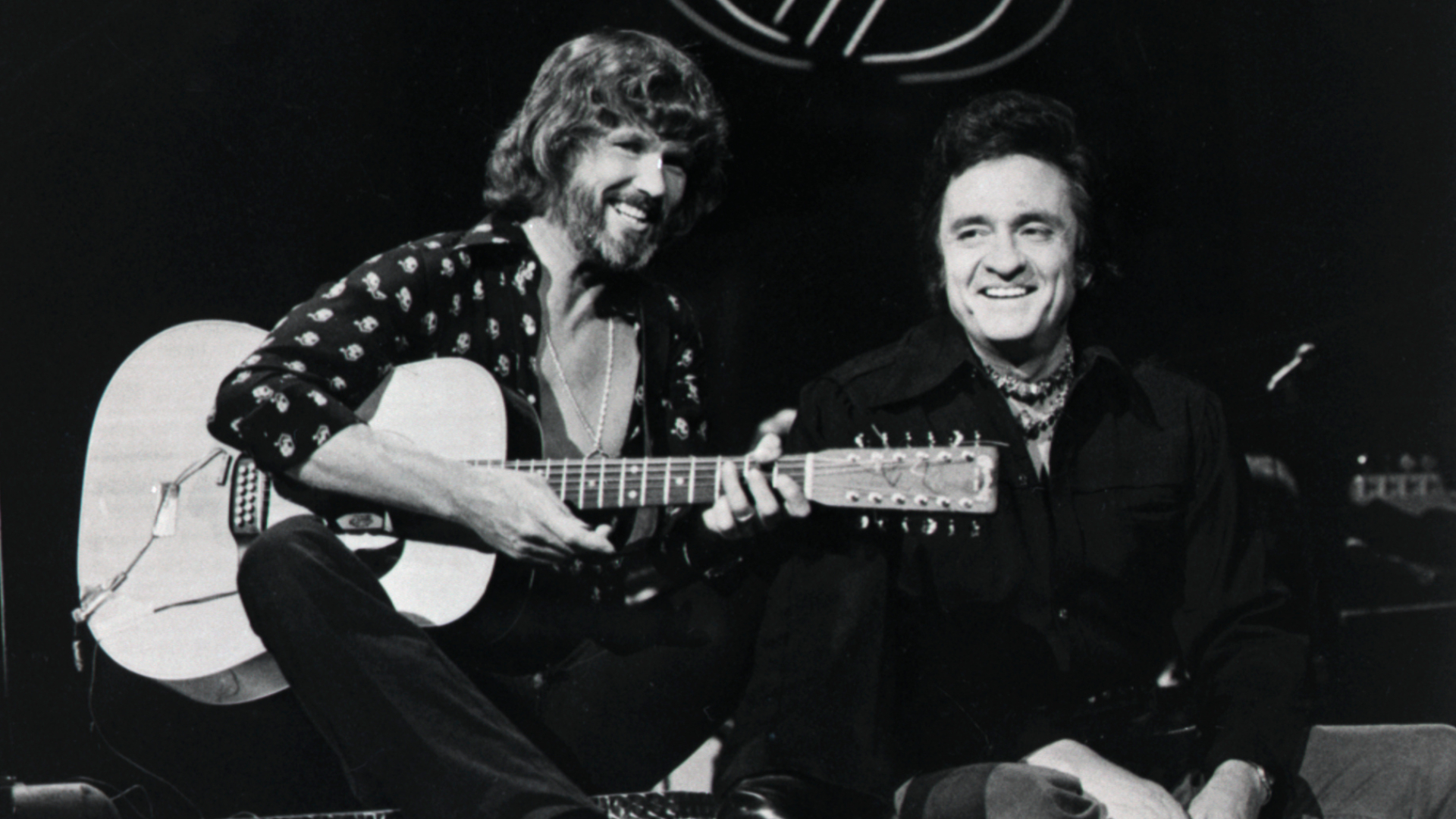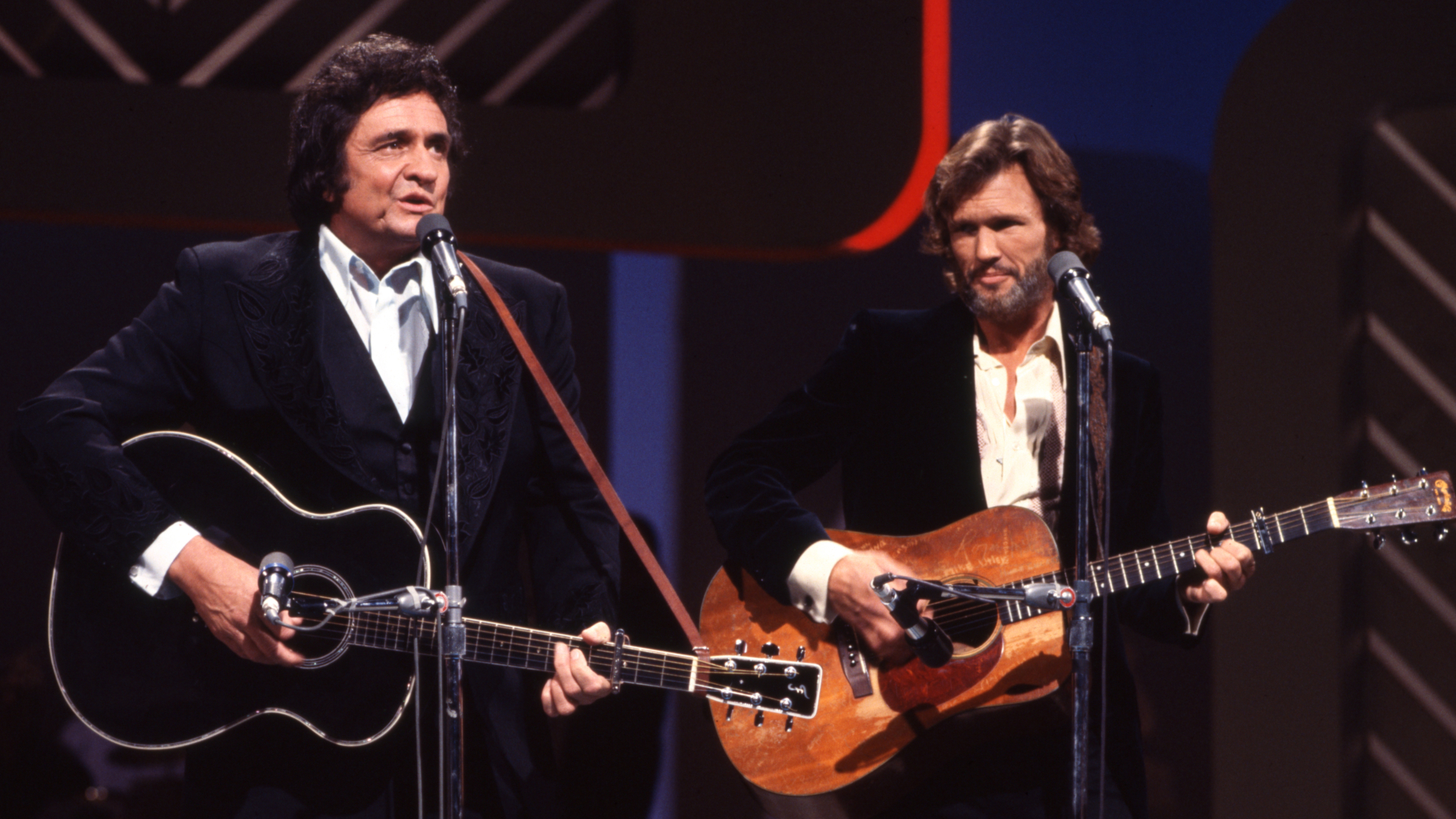“I’m not gonna record until you come up there!” Kris Kristofferson tells how Johnny Cash defended him when he was a recording studio janitor
Kristofferson, who died Saturday, recalled Cash’s generosity as an example of how he “always stood up for the underdog”

Kris Kristofferson was better known for his songwriting talents than his guitar artistry, but he provided many performers — including guitarists like Ray Price and Johnny Cash — with hit tunes. Among the many famous songs he penned were the Price hit "For the Good Times," “Help Me Make It Through the Night,” a blockbuster for country singer Sammi Smith in 1970, and “Me & Bobby McGee,” a posthumous chart-topper for Janis Joplin in 1971.
But long before he had success, Kristofferson — who died Saturday, September 28, at age 88 — had a run-in at a Johnny Cash session that almost put the skids on his career.
After leaving the army in 1965, Kristofferson moved to Nashville in the hope of becoming a successful songwriter. He soon landed a job as a janitor at Columbia Recording Studios, where he eventually met June Carter, Cash’s wife. He gave her his demo, and asked her to pass it along to Cash. Nothing came of it, but in short order Kristofferson met the Man in Black for himself when Cash booked a group of sessions at the facility. It was there that an incident nearly cost Kristofferson his job.

As he explained in the 2015 documentary Johnny Cash: American Rebel, “I almost got fired one time because a couple of songwriters crashed the session, and they were trying to pitch him a gospel album. And for some reason the woman who was the secretary to the producer blamed me for letting them in there, and tried to get me fired.
“And so the next night my boss came down and said, ‘I don’t think you should go to John’s session tonight,’ which was heartbreaking for me because I lived for those recording sessions. But I understood.”
When Cash learned why Kristofferson had been banned, he went looking for the young man and found him in the studio's basement. "I hid down in the vault of the recording studio and was erasing tapes down there or doing some kind of busy work," Kristofferson recalled. “He said, I understand you’re not coming to the session.' I said, ‘No, I’ve got a lot of work to do down here. I can’t.’
“He said, ‘Well I just wanted to tell you I’m not gonna record until you come up there.’
All the latest guitar news, interviews, lessons, reviews, deals and more, direct to your inbox!
“So I had to go up there and sit on the floor.
“And here I was, the janitor, and I’m sitting on the floor, and this woman who tried to get me fired was watching me the whole session. It was the most uncomfortable I’ve ever been in my life.
“But I thought it was the measure of the man. He's always stood up for the underdog."
Cash would eventually record one of Kristofferson’s songs, “Sunday Morning Coming Down,” in 1970. The track went to number one on the Billboard US Country chart and changed the songwriter's fortunes.
As Kristofferson told NPR’s Rachel Martin in 2013, Cash’s success with the tune “opened up a whole lot of doors for me. So many people that I admired, admired it. Actually, it was the song that allowed me to quit working for a living.”

Christopher Scapelliti is editor-in-chief of GuitarPlayer.com and the former editor of Guitar Player, the world’s longest-running guitar magazine, founded in 1967. In his extensive career, he has authored in-depth interviews with such guitarists as Pete Townshend, Slash, Billy Corgan, Jack White, Elvis Costello and Todd Rundgren, and audio professionals including Beatles engineers Geoff Emerick and Ken Scott. He is the co-author of Guitar Aficionado: The Collections: The Most Famous, Rare, and Valuable Guitars in the World, a founding editor of Guitar Aficionado magazine, and a former editor with Guitar World, Guitar for the Practicing Musician and Maximum Guitar. Apart from guitars, he maintains a collection of more than 30 vintage analog synthesizers.
